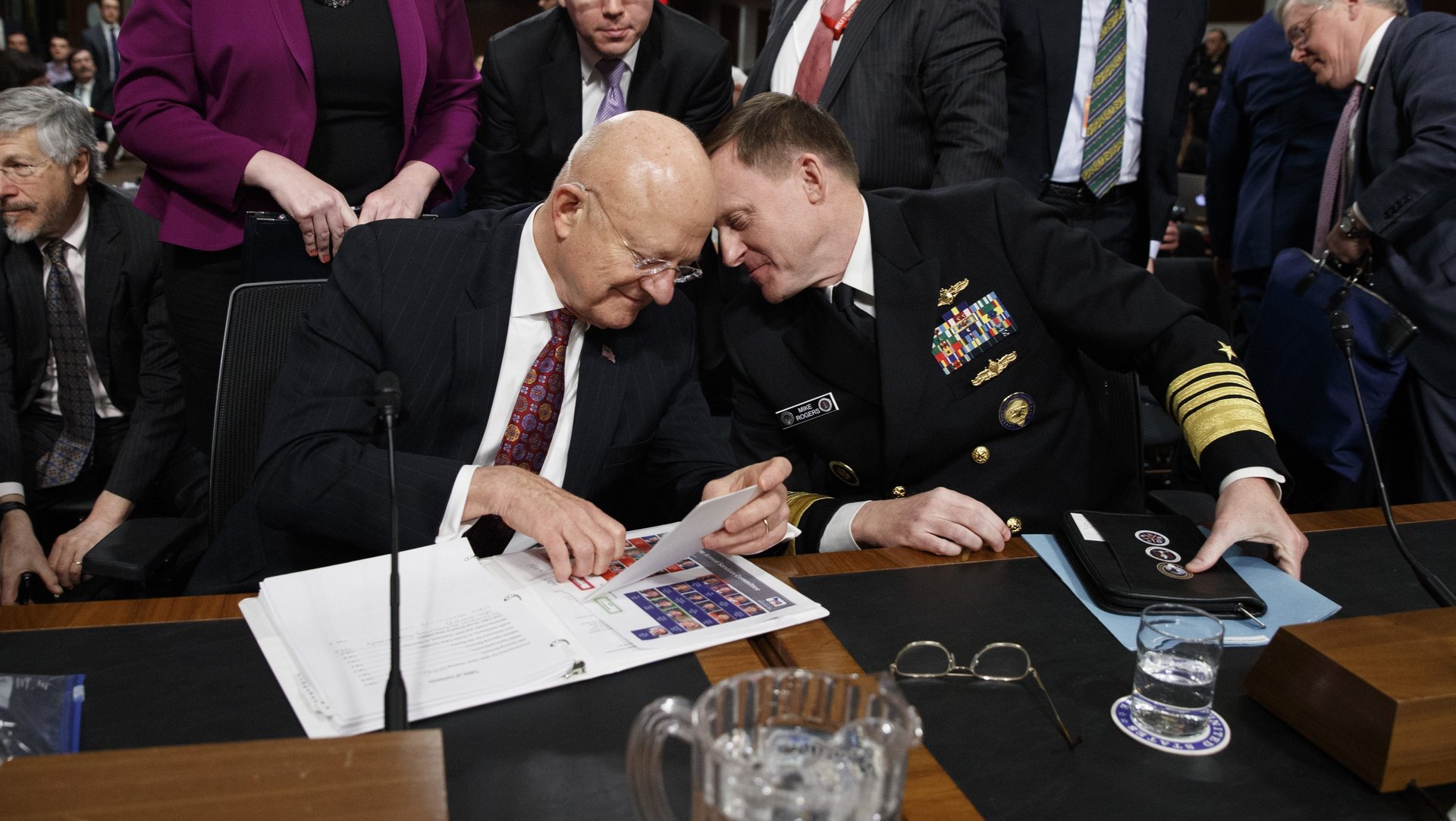Intelligence officials argue that Trump’s disparagement is hurting staff morale
If you’re interested in wealth or glory, intelligence gathering probably isn’t the profession for you.


If you’re interested in wealth or glory, intelligence gathering probably isn’t the profession for you.
The work can be tedious, the salaries are set by the government and anonymity is a given. The payoff comes from knowing you’re helping defend the nation, and punishing its enemies. So what happens when the future commander-in-chief trashes your work?
After president-elect Donald Trump publicly scoffed at the spy agencies’ assessment that Russia meddled in the US election, security officials testified they’re concerned about the motivation and retention of their staff.
“We haven’t done a climate survey, but I hardly think it helps,” James Clapper, the national intelligence director, said when asked about morale by Senator Martin Heinrich, a democrat from New Mexico, at a congressional hearing today.
Admiral Mike Rogers, the cyber command chief, elaborated. “I don’t want to lose good motivated people who want to help save their nation because they don’t feel like they’re generating value to help this nation,” he said.
Money is why workers show up, but it’s not why they care. Employees will work harder and more diligently if they believe their work has meaning, according to behavioral economist Dan Ariely. In a series of experiments he describes in his book Payoff: The Hidden Logic That Shapes our Motivation, Ariely, a professor at Duke University, shows that when workers feel their products are valued, they’ll worker longer and for less money. Similarly, his experiments suggest that while financial rewards motivate workers in the short term, attention and praise from superiors counts for more in the long run.
Workers in all fields want to know their work is valued, Ariely says. And if that’s true in widget factories, it should be even truer for men and women engaged in the more consequential work of national intelligence.
Spies are used to tough questions, but there’s a difference between skepticism about intelligence reports, and lacking faith in the whole enterprise, Rogers said. “What we do is in no small part driven by the confidence of our leaders in what we do, and without that confidence, I don’t want a situation where our workforce decides to walk,” he said.